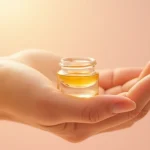Aging is a natural process that everyone undergoes, and it significantly affects various aspects of our health, including our skin. The skin, which is the largest organ in our body, becomes susceptible to various changes. The appearance of wrinkles, age spots, and dry patches are all signs of aging skin. However, these changes don’t have to be drastic or rapid, and certain micronutrients can slow down the skin aging process. This article will discuss the roles that specific micronutrients play in maintaining and improving skin health, especially in elderly populations.
Essential Fatty Acids and Skin Health
Essential fatty acids, particularly omega-3 and omega-6, are vital for maintaining skin health. These micronutrients cannot be synthesized by our bodies, making them essential components of our diet.
Also to see : Can Boosting Your Vitamin C Levels Alleviate Cold Symptoms? Discover the Facts!
The fatty acids play a crucial role in skin health. They are the main components of cell walls, maintaining cells’ integrity and functioning. Omega fatty acids also contribute to skin hydration and flexibility, thus preventing dryness, which is a common skin concern among the elderly.
Furthermore, these fatty acids have potent anti-inflammatory effects, which can help manage skin conditions like psoriasis and eczema, prevalent among the elderly. Research indexed in databases like PubMed, Crossref, and Google Scholar, suggests that omega fatty acids can also protect against skin aging by reducing the harmful effects of ultraviolet (UV) radiation from the sun.
Additional reading : How Effective Is Cold Therapy in Reducing Symptoms of Multiple Sclerosis During Flare-Ups?
The Role of Vitamins in Skin Health
Vitamins, specifically vitamins A, C, and E, are critical for skin health. These vitamins function as antioxidants, neutralizing harmful free radicals that can cause skin damage and accelerate the aging process.
Vitamin A, or retinol, is renowned for its role in skin health. It promotes cell turnover, stimulates collagen production, and reduces signs of aging such as wrinkles and age spots.
Vitamin C is a potent antioxidant that protects the skin from oxidative stress. It plays a crucial role in collagen synthesis, a protein that provides structure and elasticity to the skin. When applied topically or ingested, vitamin C can improve skin texture and reduce the appearance of wrinkles.
Vitamin E, like vitamin C, is a powerful antioxidant. It protects the skin from damage caused by environmental factors such as pollution and UV radiation. Vitamin E also has moisturizing properties, making it beneficial for those with dry skin.
Collagen and Skin Health
Collagen is the most abundant protein in our bodies, and it’s essential for maintaining skin structure and elasticity. However, its production decreases with age, leading to sagging skin, wrinkles, and other signs of aging.
Oral collagen supplements have become increasingly popular as a way to combat these effects. Several studies available on PubMed and Google Scholar demonstrate that these supplements can increase skin elasticity and hydration, reduce wrinkles, and improve overall skin health in elderly populations.
Antioxidants and Their Effects on Skin Health
Antioxidants are molecules that neutralize free radicals, unstable molecules that can damage cells and contribute to aging and diseases. They play a crucial role in skin health by protecting the skin from this damage.
Examples of antioxidants beneficial to skin health include carotenoids, coenzyme Q10, and polyphenols. These antioxidants can protect the skin from damage caused by exposure to UV radiation, pollution, and other environmental stressors. They can also improve skin’s hydration and elasticity, reduce inflammation, and slow the appearance of aging.
Zinc and Skin Health
Zinc is a mineral that plays vital roles in cellular metabolism, immune response, protein synthesis, DNA synthesis, and cell division. It’s also essential for skin health, particularly for its healing and anti-inflammatory properties.
Zinc is involved in the structure of proteins and cell membranes, protecting the skin from injury and UV damage. It’s also used in the treatment of various skin conditions, including acne, rosacea, and eczema. Dietary zinc can be found in a variety of foods, including meat, shellfish, legumes, and seeds.
In summary, micronutrients play a crucial role in maintaining skin health, particularly in the elderly. A diet rich in these micronutrients or using supplements can significantly improve skin hydration, elasticity, and appearance, slowing down the skin’s aging process. While this article is information-packed, it’s always best to consult with a healthcare professional before starting any new dietary regimen or supplement.
Role of Minerals in Skin Health
Minerals such as selenium, copper, and silica are indispensable for maintaining healthy skin, especially for older adults. These minerals, like many micronutrients, can’t be synthesized by our bodies and must be ingested through diet or supplements.
Selenium is a powerful antioxidant that protects the skin from oxidative stress, which is one of the leading causes of skin aging. Selenium works synergistically with vitamin E, enhancing its effectiveness in preventing oxidative damage. It is also involved in the repair of DNA, thus promoting skin cell regeneration and wound healing.
Copper, on the other hand, plays a vital role in the production of collagen and elastin, two proteins necessary for skin strength and elasticity. Copper peptides are often used in skincare products for their anti-aging properties, and studies indexed in databases like PubMed and Google Scholar have shown their efficacy in reducing wrinkles and improving skin firmness.
Silica is another essential mineral for skin health. It helps to strengthen the connective tissues in the skin, enhancing elasticity and slowing down the skin sagging process. In addition, silica aids in the absorption of other essential nutrients, thereby optimizing their benefits for skin health.
Conclusion
In conclusion, the aging process significantly affects our skin health, leading to wrinkles, dryness, and other signs of aging. However, incorporating specific micronutrients into our diet can significantly slow down these changes and enhance overall skin health.
These micronutrients, including essential fatty acids, vitamins, collagen, antioxidants, zinc, and other minerals, play vital roles in maintaining skin integrity, hydration, elasticity, and appearance. They protect the skin from damaging factors such as UV radiation and oxidative stress, enhance wound healing, stimulate collagen production, and have potent anti-inflammatory properties.
The importance of a diet rich in these micronutrients or the usage of nutritional supplements should not be underestimated for maintaining skin health in elderly populations. Future research, as indexed in platforms like PubMed, Crossref, and Google Scholar, may further elucidate the mechanisms by which these micronutrients exert their beneficial effects.
However, it’s always recommended to consult with a healthcare professional before starting any new dietary regimen or supplement. They can provide personalized advice based on your individual health status and needs, ensuring the most effective and safe approach to enhance your skin health. Remember, healthy skin is not just about looking good; it’s a crucial part of overall well-being and quality of life.






